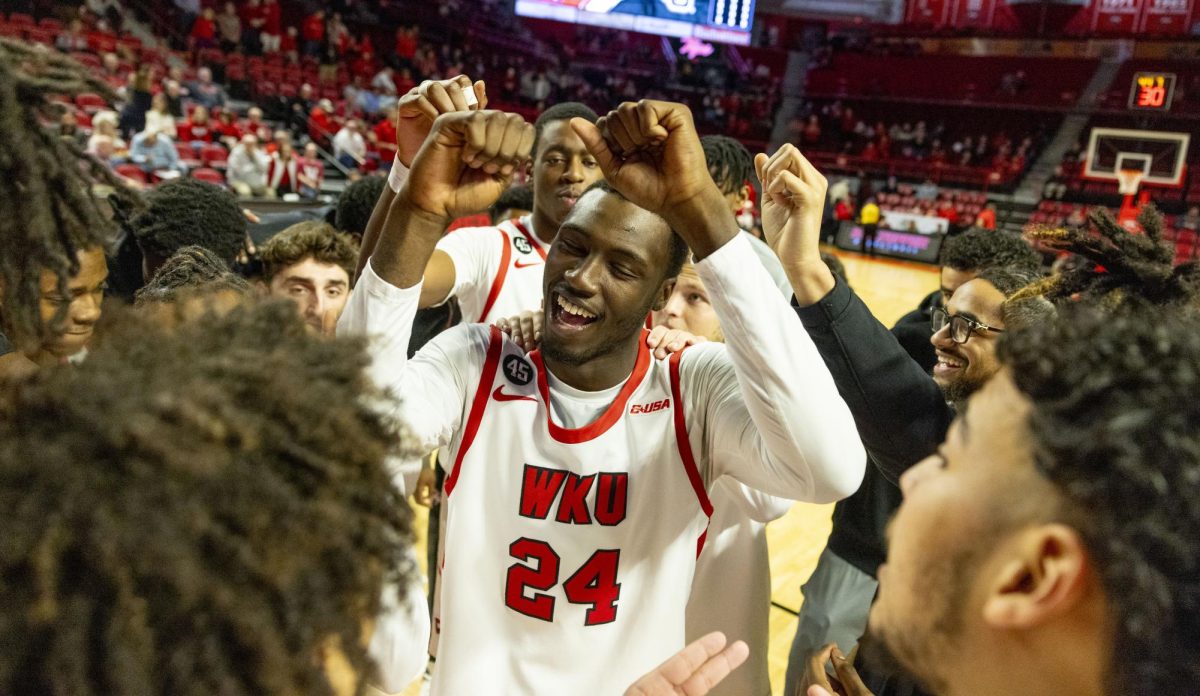Syrian civil war hits home for students
September 18, 2013
Two years in the Syrian civil war has disrupted the lives of millions. Its destructive reach has been so vast that it has even touched the lives of a handful of WKU students who have studied, or even lived, near the conflict.
Hodgenville senior Haley Edwards participated in a Study Abroad program in Irbid, Jordan at Yarmouk University. She was studying the Arabic language and culture for four months during the spring semester.
Irbid is 15 minutes from the border of Syria, and Edwards said many of her instructors who were from Syria had family members who had left the country. However, some still remained.
“There were always times when they were wondering about their families,” Edwards said.
Even as the conflict in Syria continued to escalate during her stay in Jordan, Edwards said she did not feel threatened.
“It didn’t seem like that at that point it would spill over into Jordan,” she said.
Formerly living in the region, junior Abbas Alnakhli has a unique perspective on the conflict in Syria.
Alnakhli is a Saudi Arabian international student studying at WKU. Alnakhli said he has relatives in Syria who have lived there for more than 10 years and has visited the country several times a year up until 2010.
“I always (went) there before the revolution happened,” Alnakhli said.
Alnakhli’s relatives in Syria do not support either side, he said. They live in Damascus, which is still under the control of Syria’s President, Bashar Al-Assad and are able to attend school and continue to go to work.
Saudi Arabia, Alnakhli’s home country, has been supporting the Sunni rebellion within Syria with military and financial aid. However, Alnakhli said he does not support this aid to the rebel forces, since many of them are aligned with terrorist groups.
“These are the same people who are very hateful to other religions,” he said.
Originally, the protesters in Syria were from inside the country, but now most of them are outside groups who are exploiting the revolution, Alnakhli said.
“The religious people took advantage of the revolution,” he said.
Despite Assad’s alleged use of chemical weapons, Edwards isn’t convinced her home country, the United States, should intervene militarily. She used the example of false claims of weapons of mass destruction that led to the Iraq war.
“As a naturally skeptical person — we’ve been fooled before,” Edwards said.
Like Edwards, Gatton Academy junior Saralinda Schell was living right by the Syrian border for her Study Abroad program.
The difference: Schell was only 15 years old during most of her stay.
Schell traveled to Gaziantep, Turkey, which is only 40 miles from the Syrian border, as part of the Kennedy-Lugar Youth Exchange & Study Abroad program through the U.S. Department of State. The program was nearly a year long, meaning Schell was there for many waves of the Syrian conflict.
During her stay, Schell said she never felt unsafe, but at the same time, Gaziantep had the potential to have spillover from the Syrian war.
“In the unlikely event that if something came over from Syria, Gaziantep would be hardest hit, as it is the largest population center close to the area,” Schell said.
Like Schell, her parents were not worried about her safety since she was under the watch of the U.S. Department of State. The rest of her family, however, was more uneasy with the idea of her living so close to a civil war.
“I just got a lot of wishes and prayers for my safety,” Schell said.
While taking buses and traveling through the city, Schell said she saw Syrian refugees who likely illegally crossed the border. Beyond the illegal Syrians, Gaziantep was home to three Syrian refugee camps.
Even though the Syrian refugees put a strain on the Turkish economy, the Turks were still welcoming to them, Schell said.
“The Turks themselves are very hospitable people, and they definitely wanted to help these people,” Schell said.
While Schell said she would prefer that the U.S. not intervene in Syria, she said if no one else does, it may be the least unfavorable option.
“There are not a lot of good options, but doing nothing, I think more people are going to die,” she said.
At Edwards’ program, one of the directors, Manal, was particularly impacted by the situation in Syria. Manal, who asked not to be fully identified for safety reasons, grew up in Damascus prior to the uprising in 2011.
Edwards said Manal felt “more oppressed” being a woman in Jordan than she did when she lived in Damascus, which Manal called more “progressive.”
“And now with the crisis, she is not safe to be there,” Edwards said.
Edwards said throughout the program, Manal told her and other students stories about growing up in Syria.
As the war dragged on throughout her stay, many of the stories Manal told her were deeply emotional, she said.
“What really affected me was her passion — her love for her country and what it had been and the real deep sorrow at what it had become,” she said.













